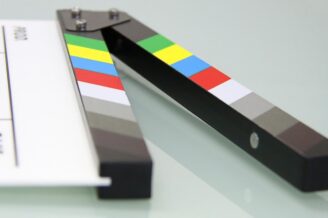The most difficult, capricious and frivolous, but at the same time attentive, responsive and “plastic” audience in the world is, of course, teenagers. Much has been said and written about the difficult time of growing up and becoming a personality, and we will not repeat ourselves. We will only say that one can find oneself, understand something important and fundamental about the world around us only by reading books. Only there can one meet a truly kindred spirit, even if the teenager is separated from it by a whole era. Only in books is it possible to “get used” to a variety of social and historical roles-with all the benefits and obvious risks for the emerging personality. Today we are going to talk about books recommended for reading in adolescence; books that open up horizons, that help develop productive thinking and reflection.
At this point, it is worth making a reservation that there is no “canonical” list of such literature in nature. That is, in many countries, they are regularly compiled, but taking into account regional, educational, traditional, and even religious specifics. To this can be added the amendments of experts in adolescent psychology, the commercial interests of publishers, fashion trends, and a dozen other important factors. We have tried to compile our list, to some extent relying on national traditions, but still focusing on global practice. This “puberty list” excludes undoubtedly necessary popular science books, fairy-tale fantasy, and other similar things that are not directly related to the formation of thinking, reflection, and empathy.
- Ray Bradbury’s “Fahrenheit 451”
The hero of this book, Guy Montag, works as a firefighter, but not in the way we understand the essence of firefighting now. Guy burns books, the reading of which undermines the foundations of society and is punishable by death by law. This immortal novel not only teaches something good and speaks to a teenager in a language he understands-there are actually many such books-it “provokes” a love of reading for many years. The teenager, together with the hero of the novel, makes a choice – to think and fight or, conversely, to give up and live according to conformist patterns, gradually turning into a thoughtless robot. Such inner work gives a powerful impetus to further self-education, to the search for important topics, to “freestyle swimming” in a good way. - Harry Potter series of books about the adventures of J.K. Rowling
Perhaps some adult readers of this article will find this item in the list of literature for teenagers strange and even harmful. But, nevertheless, this cult series is a real “Mastridium” for a modern person. Not reading a novel about the mystical adventures of a young wizard means falling out of the “cultural code.”
Even if some moral or pedagogical aspects of this literary work are not perfect from the point of view of the national tradition, it is the cultural value that prevails in this case. In addition, the Harry Potter series helps to teach the process of reading, which is a real problem in many families around the world. Modern teenagers are surrounded by a super-saturated information environment, gadgets, social networks, and interesting games – in these conditions, reading is a “no brainer”.
- “To Live to Love by Rebecca Donovan
This book is somewhat popular on the Russian market, but still clearly not enough. This novel is a real global teen bestseller and tells about many important problems of adolescence. The seemingly simple plot and simple language of presentation hide a powerful charge for analysis and “feeling”. The growing personality finds in the pages of the book even somewhat excessive food for thought about the nature of love and violence, about social roles and strength of character. - Marianne Curley “The Timekeepers”
This book belongs to the already described category of fascinating and engaging reads. It is not so much rich in issues as it is simply awakening a sense of pleasure from the text printed on paper. The genre itself, which can be defined by the phrase “between science fiction and fantasy,” is quite useful for the formation of personality. In our educational tradition, unfortunately, it receives almost no attention, while in Western Europe, books like The Timekeeper are considered mandatory components of the extracurricular reading program. - Jay Escher’s “13 Reasons Why”
This book can be recommended with a certain amount of caution, because the problems raised in its pages are very deep and even traumatic for the reader. The topic of adolescent suicide is generally very complex, and it is probably better to talk about it with psychologists and teachers. But high-quality literature can also be a good help in analyzing the causes of such a complex phenomenon, which often cannot be reduced to psychology or even psychiatry. The plot of the novel is rather gloomy and filled with harassment of the protagonist, but all this is compensated by bright, clear thoughts.



